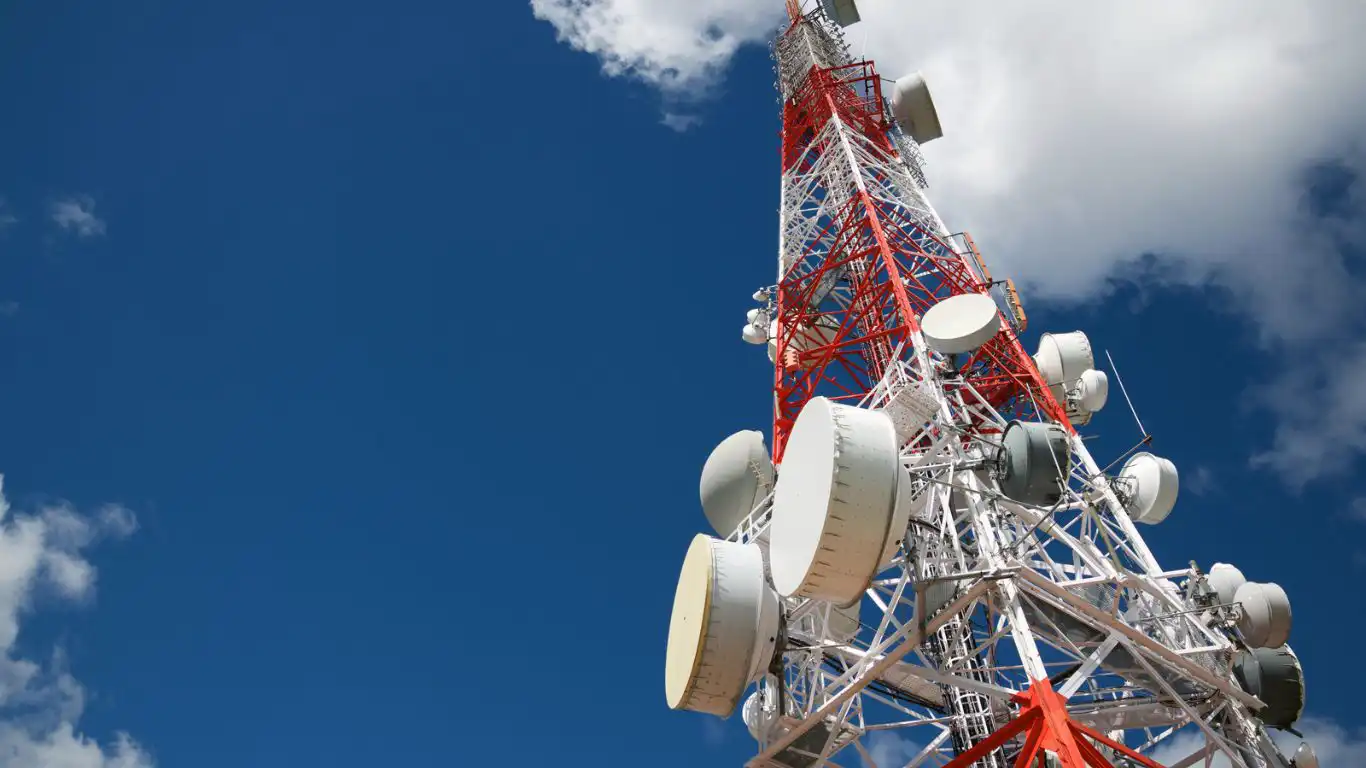The Evolution of Telecommunication in Nigeria: From Dial-Up to 5G
The Evolution of Telecommunication in Nigeria: From Dial-Up to 5G


The Evolution of Telecommunication in Nigeria: From Dial-Up to 5G
Telecommunication in Nigeria have gone a long way since the first telegraph service was offered in the nation in 1886. Nigeria has seen major developments in telecommunications technology over the years, resulting in broad use of mobile phones and internet services throughout the country. In this article, we will look at the evolution of telecommunication in Nigeria, from dial-up to the most recent 5G network technologies.
How did Telecommunication evolve in Nigeria?
In Lagos, Nigeria, the first telephone exchange opened in 1893, but it wasn’t until the 1980s that telecommunication services started to grow quickly all over the country. Nigerian Telecommunications Limited (NITEL) was made in 1985 to be the only company in the country that could provide fixed-line phone service. But the state-run company had problems with inefficiency, corruption, and not investing enough, which led to bad service and unhappy customers.
The privatisation of NITEL in 1999 represented a significant milestone in Nigerian telecommunications history. With the advent of private sector competitors such as MTN Nigeria, Airtel Nigeria, and Globacom, heated rivalry arose, resulting in the launch of new goods and services such as mobile phone services and internet access.
Read: Detailed History of internet in Nigeria
Read: Send Money to Nigeria? Here’s Why Western Union Should Be Your Go-To Option
What is the evolution of telecommunication?
The evolution of telecommunication in Nigeria can be classified into four distinct phases:
- Fixed-line and dial-up telephony
Fixed-line telephony was the dominating technology in Nigeria during the early days of telecommunications. To communicate with persons in other areas of the nation or abroad, customers had to dial long-distance codes. Nigeria’s dialling code is +234, while the country code number is 234. - Mobile phone service
The arrival of mobile telephony in Nigeria transformed the telecommunications business, allowing millions of individuals to use telephone services without relying on fixed-line connections. MTN Nigeria developed the first mobile network in Nigeria in 2001, followed by Econet Wireless Nigeria (now Airtel Nigeria) and Globacom in 2002. - Internet connectivity
The internet’s spread in Nigeria began in the early 2000s with the introduction of dial-up internet services. Nevertheless, the technology’s poor speed and hefty cost hindered its use. The introduction of broadband internet services in the late 2000s and early 2010s represented a considerable improvement, resulting in widespread acceptance of internet services throughout the country. - 5G network technology
The launch of 5G network technology is the most key development in the growth of telecommunication in Nigeria. While 5G implementation in Nigeria is still in its early phases, the technology is projected to change the telecommunications sector by allowing faster download and upload rates, greater connection, and the creation of new apps and services.
Has Nigeria launched 5G network?
True, Nigeria has begun to install 5G network technology, but it is still in its early phases. MTN Nigeria is the country’s first mobile network provider to start a 5G network testing in select locations in November 2019. Airtel Nigeria and Globacom, among others, have declared intentions to introduce 5G services in the near future.

What are the types of telecommunication in Nigeria?
The types of telecommunication in Nigeria can be classified into four main categories:
- Fixed-line telephony: This refers to telephone services that are delivered over a fixed-line connection, such as copper wire or fiber optic cable.
- Mobile telephony: This refers to telephone services that are delivered over a mobile network, enabling customers to access telephone services and internet connectivity on their mobile devices.
- Internet connectivity: This refers to services that provide access to the internet, either through a fixed-line connection or a mobile network.
- Satellite communication: This refers to services that use satellites to provide voice and data communication in areas where traditional fixed-line and mobile networks are not available.
Conclusion
To summarise, Nigeria telecommunication evolution has been spectacular, from the early days of dial-up to the most recent 5G network technologies. The development of mobile phones, internet access, and satellite communication has significantly improved communication and connectivity throughout the country. Nigeria is likely to see more breakthroughs in telecommunications with the advent of 5G technology, leading to a more connected and digitalized society.

